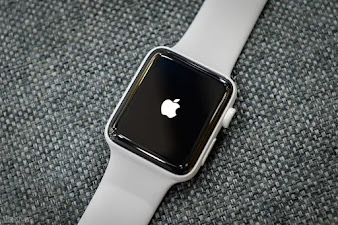7 Ways Tech is Totally Changing How We Recover (Yeah, Really!)
Let’s be real: recovery sucks. Whether it’s bouncing back from surgery, kicking an addiction, or dealing with mental health stuff, it’s messy, personal, and hard.
I’ve watched friends grind through it, and honestly, the old-school methods—endless clinic visits, paper journals, waiting rooms that feel like purgatory—just don’t cut it anymore.
But guess what? Tech’s swooping in like a superhero. From apps that act like therapists to gadgets that basically read your mind (kinda), here’s how tech’s flipping the script on recovery.
1. Telemedicine: Therapy in Your Pajamas
Remember when seeing a doc meant dragging yourself across town? Now? You can cry about your breakup to a therapist while wearing ratty sweatpants. And that’s awesome.
Telemedicine blew up during COVID, but it’s here to stay. My cousin in rural Wyoming gets addiction counseling via Zoom through this app called Bicycle Health—no judgment, no 3-hour drive.
Even cooler? Devices like Bluetooth blood pressure cuffs send data straight to your doctor. No more white-coat syndrome messing with your readings.
For folks battling anxiety or addiction, privacy is everything. Sliding into a telehealth session feels safer than walking into a clinic where someone might recognize you.
2. Your Fitbit is Now a Recovery Sidekick
Yeah, your Apple Watch tracks your steps, but did you know it’s also saving lives? Wearables are getting crazy smart.
Take Soberlink—it’s a breathalyzer that texts your sponsor if you slip up. No more awkward “trust me, I’m sober” conversations.
For gym rats recovering from injuries, wearables like BioStrap analyze if you’re pushing too hard or slacking. My buddy snapped his ACL last year, and his physical therapist used motion sensors to tweak his rehab plan daily.
It’s like having a tiny coach on your wrist yelling, “Dude, stop skipping leg day!”
3. AI: The Creepy (But Helpful) Mind-Reader
Okay, AI knowing when you’ll relapse sounds like a Black Mirror episode. But hear me out. Apps like Woebot—a chatbot trained in CBT—text you stuff like, “Hey, I noticed you’re typing faster.
Wanna talk about that craving?” It’s free, available at 3 AM, and doesn’t judge if you’re binge-eating ice cream.
Researchers are even using AI to scan social media posts for red flags. If your late-night tweets get super gloomy,
it might ping your therapist. Yeah, it’s a little Big Brother-y, but if it stops someone from spiraling? Worth it.
4. VR: Face Your Fears Without Leaving the Couch
Virtual reality isn’t just for gamers anymore. Imagine confronting your fear of heights by “climbing” a skyscraper… while safely planted on your living room floor.
Veterans with PTSD are using VR systems like Bravemind to replay traumatic scenes in slow, controlled doses. It’s exposure therapy without the panic attack.
And for physical rehab? Stroke survivors play VR games where they “grab” floating balloons to regain arm movement.
It’s like turning recovery into a Nintendo game. Way better than staring at hospital walls.
5. Apps Your Doctor Actually Prescribes
“There’s an app for that” just got legit. Meet digital therapeutics—FDA-approved software that’s prescribed like pills. reSET, for example, is an app for addiction recovery that dishes out daily CBT exercises and tracks your progress. Studies show it boosts success rates by 40%.
My aunt used Somryst for chronic insomnia.
Instead of Ambien, her doc told her to “take” the app—30 minutes of sleep coaching nightly. She swears it’s the reason she’s finally sleeping through Real Housewives marathons.
6. Blockchain: Your Recovery Diary, But Hack-Proof
“Blockchain” sounds like crypto-bro jargon, but it’s a game-changer for privacy. Think of it as a locked diary where you hold the key.
Rehab centers, therapists, and docs can access your info only if you say so. No more faxing your life story to five different clinics.
Startups like Patientory use blockchain to stop mix-ups with meds or duplicate tests. For opioid scripts, it tracks every pill—so no sneaky refills.
It’s about trust. If you’re in recovery, knowing your data’s safe lets you focus on healing, not paranoia.
7. 3D Printing: Like Sci-Fi, But Real
Brace yourself: they’re 3D-printing body parts now. UNYQ makes custom orthopedic braces that fit like a second skin.
No more clunky, one-size-fits-none junk. A guy in my gym shattered his collarbone and got a 3D-printed brace that matched his tattoo. Priorities.
And biotech? Lab-grown skin grafts for burn victims, implants that zap pain without opioids… It’s wild.
We’re entering an era where recovery isn’t just “good enough”—it’s personalized, badass, and kinda futuristic.
The Catch?
Look, tech isn’t perfect. Not everyone can afford a $400 smartwatch or high-speed Wi-Fi. And yeah, AI can be biased, and VR might make you nauseous.
But the upside? Huge. These tools are making recovery faster, less lonely, and way more tailored to you.
At the end of the day, recovery’s still a grind. But with tech in our corner, it feels less like climbing Everest and more like a tough hike with a killer playlist.
And hey, if my phone can remind me to drink water, maybe it can help me stay sober too. Here’s to that.

.webp)






.webp)
.webp)
.webp)

0 Comments